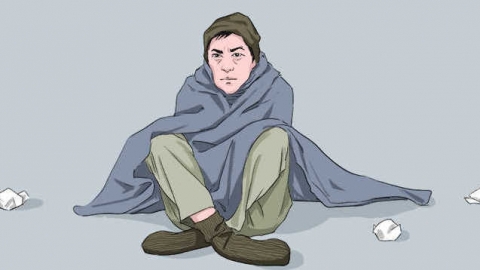What Causes Cold Intolerance and Feeling Cold Easily?
Generally, cold intolerance may be caused by congenital cold body constitution, long-term consumption of raw and cold foods, hypothyroidism, anemia, Raynaud's disease, and other factors. It is recommended to seek timely medical consultation to identify the underlying cause and receive symptomatic treatment under a physician's guidance. Detailed analysis is as follows:

1. Congenital Cold Body Constitution: Individuals born with insufficient yang energy often have weak heat-producing capacity, leading to cold intolerance, typically without other discomforts. Daily care should emphasize warmth, especially for the abdomen and feet; avoid wearing belly-exposing clothing or thin-soled shoes. Consumption of warming foods such as lamb and ginger is recommended, along with moderate exercise like brisk walking or yoga to enhance bodily yang energy.
2. Long-Term Consumption of Raw and Cold Foods: Frequent intake of cold foods like ice cream, chilled beverages, and raw fish slices may impair the spleen and stomach's yang energy, causing internal cold accumulation and resulting in cold intolerance. Dietary adjustments are necessary to reduce consumption of raw and cold foods, increase intake of warm water, and incorporate warming ingredients such as red dates and longan.
3. Hypothyroidism: Insufficient thyroid hormone secretion leads to reduced metabolic rate and body heat production, causing cold intolerance accompanied by fatigue and excessive sleepiness. Patients may take hormone-replacement medications such as levothyroxine sodium tablets, thyroid extract tablets, or levothyroxine sodium oral solution as directed by a physician.
4. Anemia: Reduced peripheral red blood cells impair oxygen-carrying capacity, decreasing energy production and causing cold intolerance, often accompanied by pallor and dizziness. Patients may take iron supplements such as ferrous succinate tablets, ferrous fumarate capsules, or iron dextran oral solution as directed by a physician.
5. Raynaud's Disease: Autonomic vascular dysfunction causes small artery spasms and constriction in extremities upon cold exposure, impeding blood circulation and causing cold intolerance, often accompanied by pale, numb fingers. Patients may take vasodilating medications such as nifedipine tablets, reserpine tablets, or tolazoline hydrochloride tablets as directed by a physician.
Daily management should include maintaining a regular sleep schedule, avoiding late nights, and minimizing yang energy depletion. Regular foot baths in warm water around 40°C can improve circulation. Dressing warmly in cold weather and avoiding prolonged exposure to cold environments can also help alleviate symptoms of cold intolerance.




